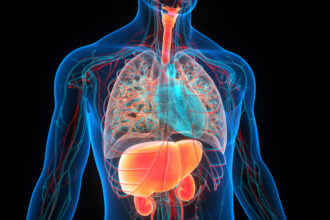During the menopausal transition, an essential and often under-recognised window for cardiovascular intervention, a new study has found that only one in five women meet optimal cardiovascular health standards as defined by the American Heart Association’s assessment tool, Life’s Essential 8 (LE8). This tool assesses eight key components of heart health, including nutrition, physical activity, smoking status, sleep patterns, body mass index, blood lipids, blood glucose levels, and blood pressure. Among these, four stand out as particularly influential in shaping long-term cardiovascular outcomes: blood glucose, blood pressure, nicotine use, and, notably, sleep. Of these, sleep appears to play a uniquely significant role in safeguarding long-term heart health and reducing overall mortality.
Published today in the journal Menopause, the findings stem from a collaborative research effort led by investigators at the University of Pittsburgh, Albert Einstein College of Medicine, and Baylor University. Drawing from data within the Study of Women’s Health Across the Nation (SWAN)—an extensive, multi-ethnic, longitudinal study launched in 1996—the researchers assessed cardiovascular trajectories of approximately 3,000 women during midlife, beginning around the age of 46. By comparing each participant’s LE8 score at the start of the study with their evolving cardiovascular profiles, which included both subclinical indicators, such as carotid artery thickening, and overt outcomes, like heart attacks, strokes, and overall mortality, the study traced the relationship between midlife health behaviours and later-life cardiovascular risks.
The researchers found that while overall LE8 scores were predictive of cardiovascular risk, sleep emerged as a particularly significant marker for long-term health outcomes. Although sleep quality did not correlate with early subclinical changes, such as carotid thickening, it strongly predicted future cardiovascular disease events and even death from all causes. According to the LE8 framework, healthy sleep is defined as averaging seven to nine hours of rest per night. Notably, the study suggests that meeting this sleep threshold in midlife may be a significant contributor to long-term heart health and lifespan. This potential should be further explored in dedicated clinical trials.
Lead author Ziyuan Wang, a Ph.D. candidate at the University of Pittsburgh’s School of Public Health, notes that the results reinforce the growing appreciation for sleep as more than just a lifestyle preference—it may be a cornerstone of preventative cardiology, particularly for women navigating the hormonal and physiological upheavals of menopause. The transition through menopause is already known to accelerate cardiovascular risk, as previous research by this team has demonstrated. However, senior author Samar R. El Khoudary, Ph.D., M.P.H., emphasises that this stage in life is not just a period of vulnerability but also one of opportunity: “This study underscores that it’s also an opportunity for women to take the reins on their heart health.”
Crucially, the analysis showed that fewer than 21% of the women studied achieved what the LE8 considers an ideal cardiovascular health score. This startlingly low number underscores the need for targeted lifestyle and medical interventions tailored to this demographic. Given that heart disease remains the leading cause of death in women, a renewed public health focus on improving sleep, along with managing blood pressure, glucose, and smoking cessation during midlife, could yield significant dividends in reducing cardiovascular disease burden among postmenopausal women.
The findings offer a compelling argument for rethinking how clinicians and public health professionals approach cardiovascular disease prevention in women. Sleep, too often overlooked in traditional risk models, may need to be prioritised alongside diet and exercise. Moreover, the fact that this study encompasses a diverse and representative cohort from SWAN enhances its relevance to broad populations. If these patterns hold in future clinical trials, they could reshape preventive strategies for women’s heart health worldwide. As the menopause transition continues to emerge as a critical pivot point in women’s long-term wellbeing, such insights may pave the way for more precise, personalised, and effective cardiovascular care.
More information: Samar R. El Khoudary et al, Prospective associations of American Heart Association Life’s Essential 8 with subclinical measures of vascular health, cardiovascular disease events, and all-cause mortality in women traversing menopause: The Study of Women’s Health Across the Nation study, Menopause. DOI: 10.1097/GME.0000000000002549
Journal information: Menopause Provided by University of Pittsburgh








